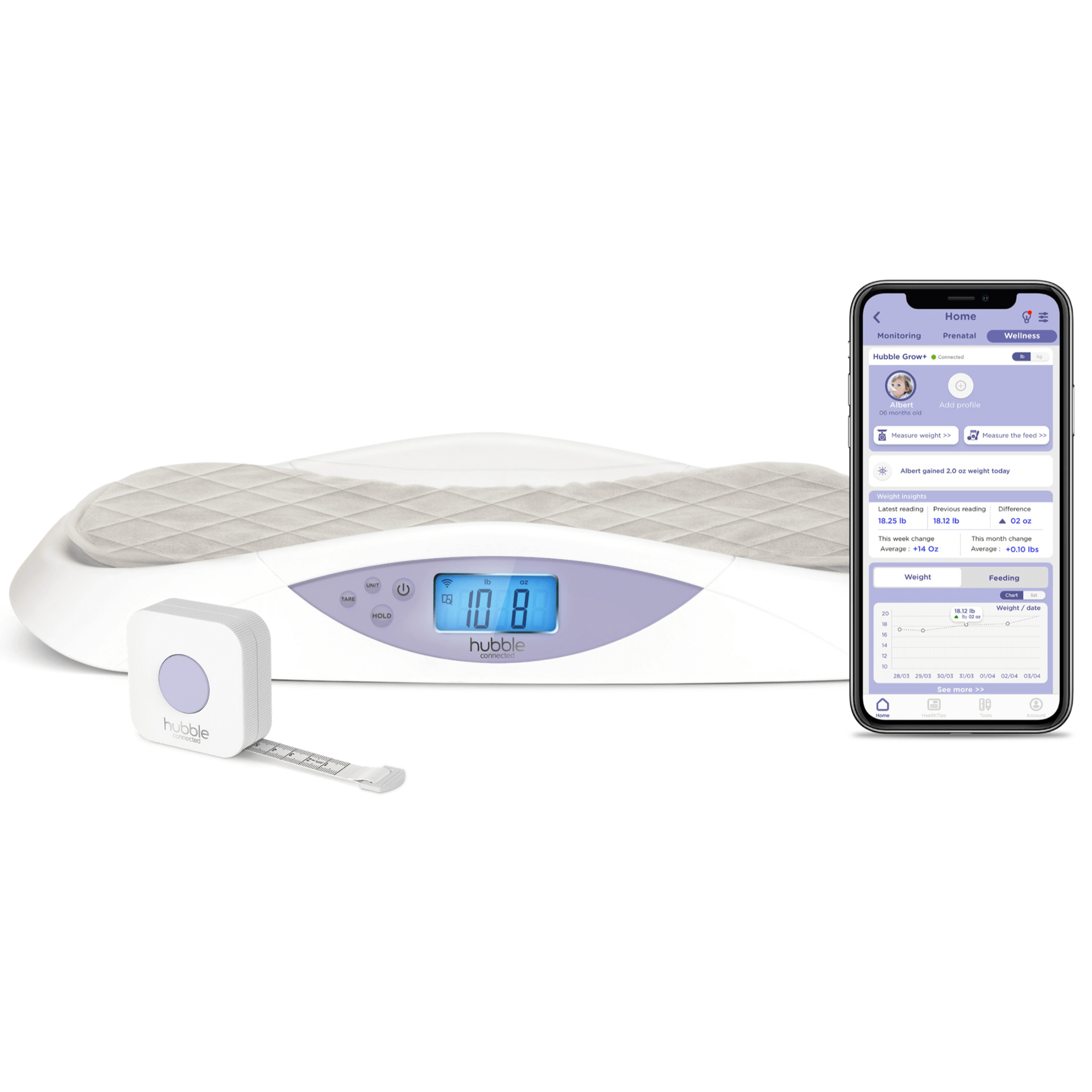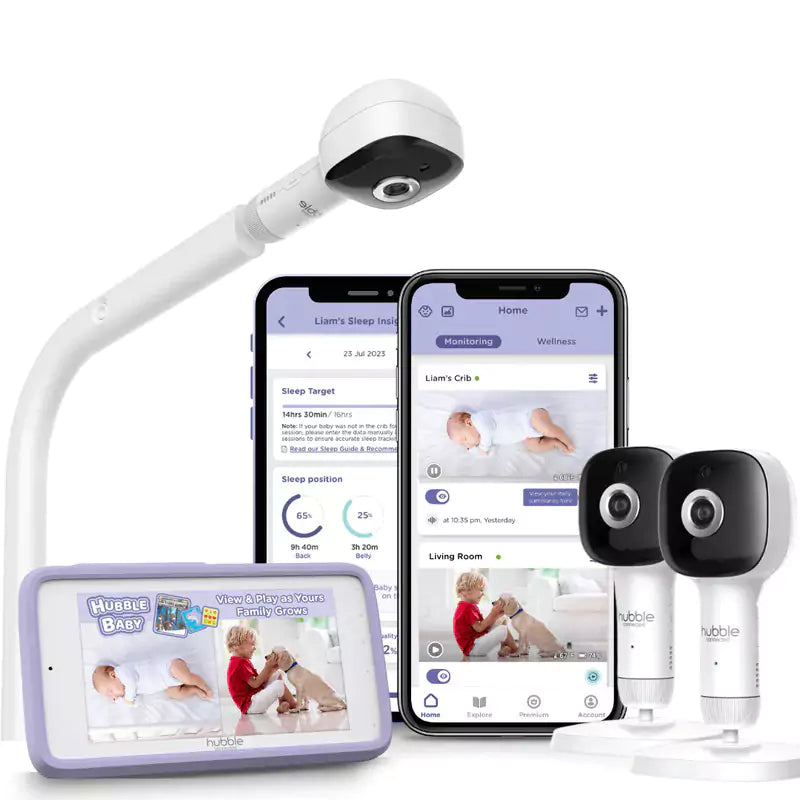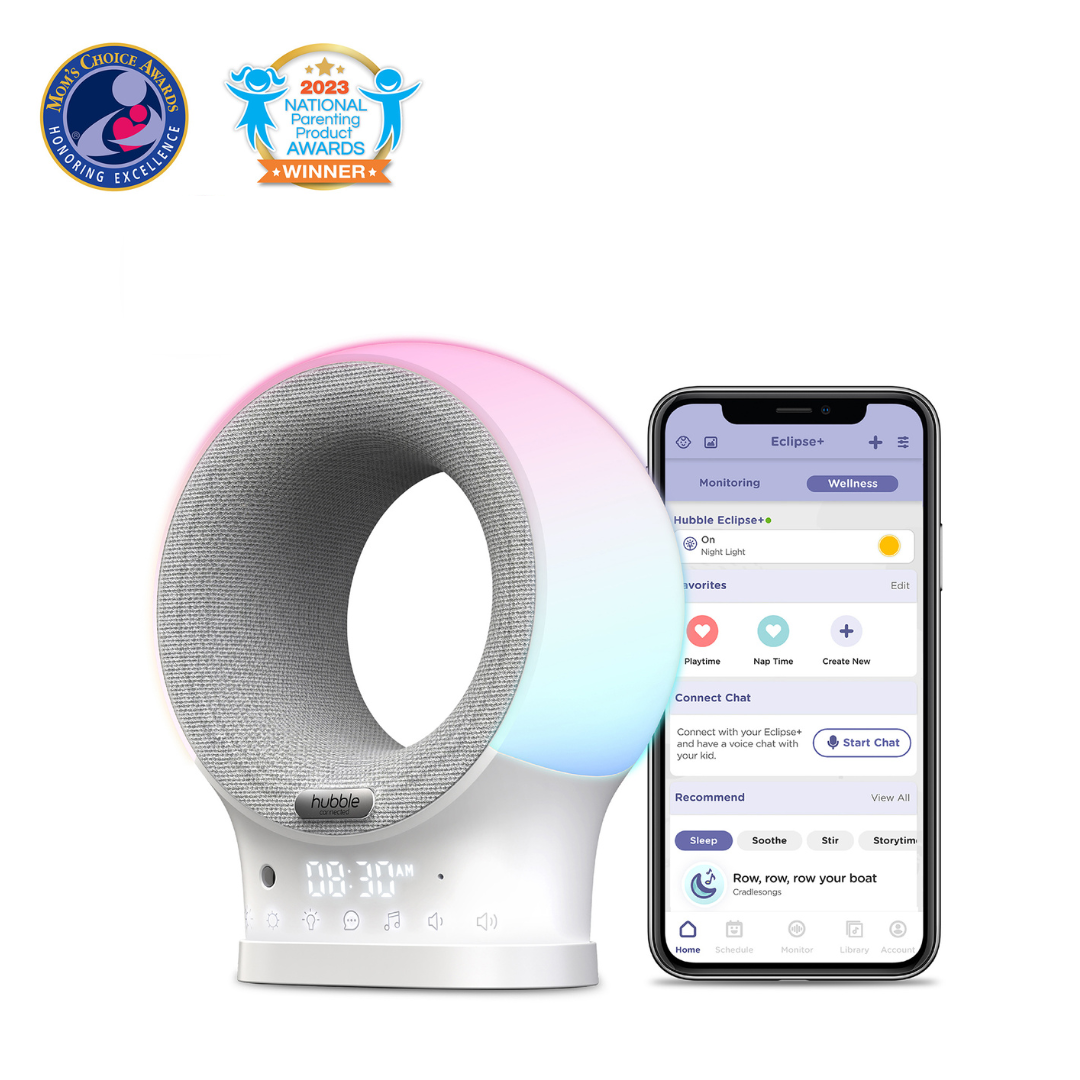Heartburn during pregnancy is a common yet lesser-known symptom. More than fifty percent of women will experience severe heartburn during pregnancy, leading to considerable pain and discomfort. While it can surface during any trimester, heartburn occurs most frequently during the second and third.
As the baby grows, heartburn and other symptoms are likely to worsen, making them more challenging to manage. If you're 27 weeks or more into your pregnancy, you may benefit from reviewing this guide to the third trimester.
In the meantime, learn how to subdue heartburn during pregnancy with our management guide.
What Is Heartburn?
Heartburn is a burning feeling in the chest caused by acid reflux, when stomach contents rise back up the esophagus. Stomach acid irritating the stomach lining and throat causes pain and discomfort. This occurs when the lower esophageal sphincter muscle, or LES, malfunctions.
The LES sits between the esophagus and stomach. It opens when we're eating or drinking to allow the food to pass and then closes to prevent acid from rising up the throat. When it doesn't close properly, however, acid and food can enter the esophagus and cause heartburn.
Symptoms of heartburn during pregnancy include:
● Bloating
● Feeling full
● Burning feeling in your chest
● Burping
● Sore throat
● Sour taste in your mouth
Heartburn vs. Acid Reflux
The definitions of acid reflux and heartburn are often confused or used interchangeably. While the two originate in the stomach, they are separate conditions. Acid reflux occurs when stomach acid backs up into the esophagus, causing burning and irritation in the throat.
Heartburn, on the other hand, is a symptom of acid reflux. It refers to the burning sensation you feel in your chest. Those who experience acid reflux don't necessarily experience heartburn; however, heartburn directly results from acid reflux.
Other symptoms of acid reflux include:
● Upset stomach
● Nausea
● Bloating
● Abdominal pain
● Sore throat
● Acidic taste in the back of the throat
● Tightness in the throat
● Difficulty swallowing
Why Is Heartburn During Pregnancy More Likely?
There are reasons why pregnancy will increase the risk of heartburn. First, added hormones can cause the LES muscle to relax, preventing it from shutting after eating. This often leads to acid reflux, which can cause heartburn.
Hormones can also change how your body digests and reacts to certain foods. Pregnancy tends to lead to slower digestion, which causes bloating and heartburn.
Finally, as the baby grows, it puts more pressure on your stomach. The pressure pushes acid upward into the esophagus, which is why heartburn occurs more frequently in the third trimester, when the baby is at its largest.
Preventing Heartburn When Pregnant
If you are prone to heartburn or are experiencing symptoms, there are steps you can take to prevent it from being a recurring issue.
Changing your diet and eating habits will be essential. You'll want to avoid food that commonly leads to heartburn, such as food that is spicy, fatty, fried, or greasy. It's also recommended you stay away from citrus juices, caffeine, and carbonated drinks.
Instead of eating three large meals throughout the day, try to eat more meals in smaller portions. Take your time while eating, as your body is digesting food slower than usual.
Other ways of preventing heartburn include:
● Drink liquids between meals instead of during
● Don't smoke
● Avoid eating or drinking three hours before going to bed
● Don't lie down after meals
● Avoid alcohol
● Sleep sitting up or with your shoulders raised on pillows
● Wear loose-fitting clothing
Alleviating Heartburn During Pregnancy
Before taking any medications for heartburn, it's essential to seek medical advice from a healthcare professional. You may want to consider natural remedies to help alleviate heartburn during pregnancy, such as drinking milk, eating yogurt, or stirring a tablespoon of honey into warm milk and drinking that.
Over-the-counter heartburn relievers can contain high sodium levels and cause you to retain water. They may also contain aluminum, which isn't safe to take during pregnancy. It's best to reach out to your healthcare provider before taking an antacid such as Tums or Maalox.
If they deem it safe, your doctor may choose to recommend or prescribe you one of the following:
Over-The-Counter Antacids
Your healthcare provider may recommend you take over-the-counter calcium carbonate or magnesium hydroxide antacids. These tend to be safe to take during pregnancy. Liquid options tend to be more effective as they coat the esophagus, offering fast relief.
H2 Blockers
H2 blockers such as cimetidine and famotidine are available in both prescription and over-the-counter strengths. They work by blocking chemical signals that produce stomach acid.
Proton Pump Inhibitors
Proton pump inhibitors, or PPIs, are also available in prescription and over-the-counter strengths. Lansoprazole and omeprazole work by reducing stomach acid.
Recognizing The Signs Of GERD
Gastroesophageal reflux disease, or GERD, is another cause of recurring heartburn. People who experience moderate to severe heartburn at least once a week may have GERD. It's not uncommon for pregnant women who experience heartburn to develop GERD by their third trimester.
Of 510 women involved in a 2012 study of GERD symptoms during pregnancy, 26 percent showed symptoms in the first trimester. The number jumped to 36 percent in the second semester and 51 percent by the third. These numbers may not seem high, but they are astounding when compared to the 20 percent of all adults in the United States who suffer from the same condition.
Common symptoms of GERD include:
● Heartburn
● Chest pain
● Regurgitation of food or a sour liquid
● Trouble swallowing
● Feeling a lump in your throat
● New or worsening asthma
● A chronic cough
● Laryngitis
● Interrupted sleep
While lifestyle changes and medications can reduce GERD symptoms, surgery is sometimes required. Over time, chronic heartburn and inflammation of the esophagus can lead to various severe health conditions, including:
Esophageal Stricture
When stomach acid damages the lower esophagus repeatedly, scar tissue will begin to develop. Esophageal stricture is when the scar tissue narrows the throat, making it difficult to swallow and for food to get to the stomach.
Esophageal Ulcer
Over time, stomach acid can create open sores in the throat called esophageal ulcers. In addition to being painful, esophageal ulcers can bleed and make it difficult to swallow.
Barrett's Esophagus
Repeated acid damage to the esophagus leads to changes in cells making up the tissue lining, increasing the chance of esophageal cancer.
When To Contact Your Healthcare Provider
Ultimately, heartburn caused by pregnancy should disappear once you give birth. However, if your symptoms are severe beforehand or remain after the baby is born, you should reach out to your healthcare provider to see what they recommend as treatment.
Contact your doctor immediately if you experience any of the following symptoms:
● Heartburn that keeps you up at night
● Heartburn that interrupts your sleep
● Trouble swallowing
● Weight loss
● Black fecal matter
● Spitting up blood
● You take over-the-counter heartburn medicine twice or more a week
In Conclusion
If you experience heartburn during pregnancy, know that you aren't alone. Most women who encounter heartburn symptoms during pregnancy find that it disappears after giving birth. However, prior to delivery, you can do plenty to avoid heartburn and reduce symptoms.
Upon the first sign of heartburn during pregnancy, you should take the proper steps to change your diet. If you're prone to acid reflux or heartburn, consider removing acid-causing foods from your diet until you give birth. You should also speak to your healthcare provider about further steps you can take to alleviate your symptoms and reduce your risk of encountering heartburn.













Share: